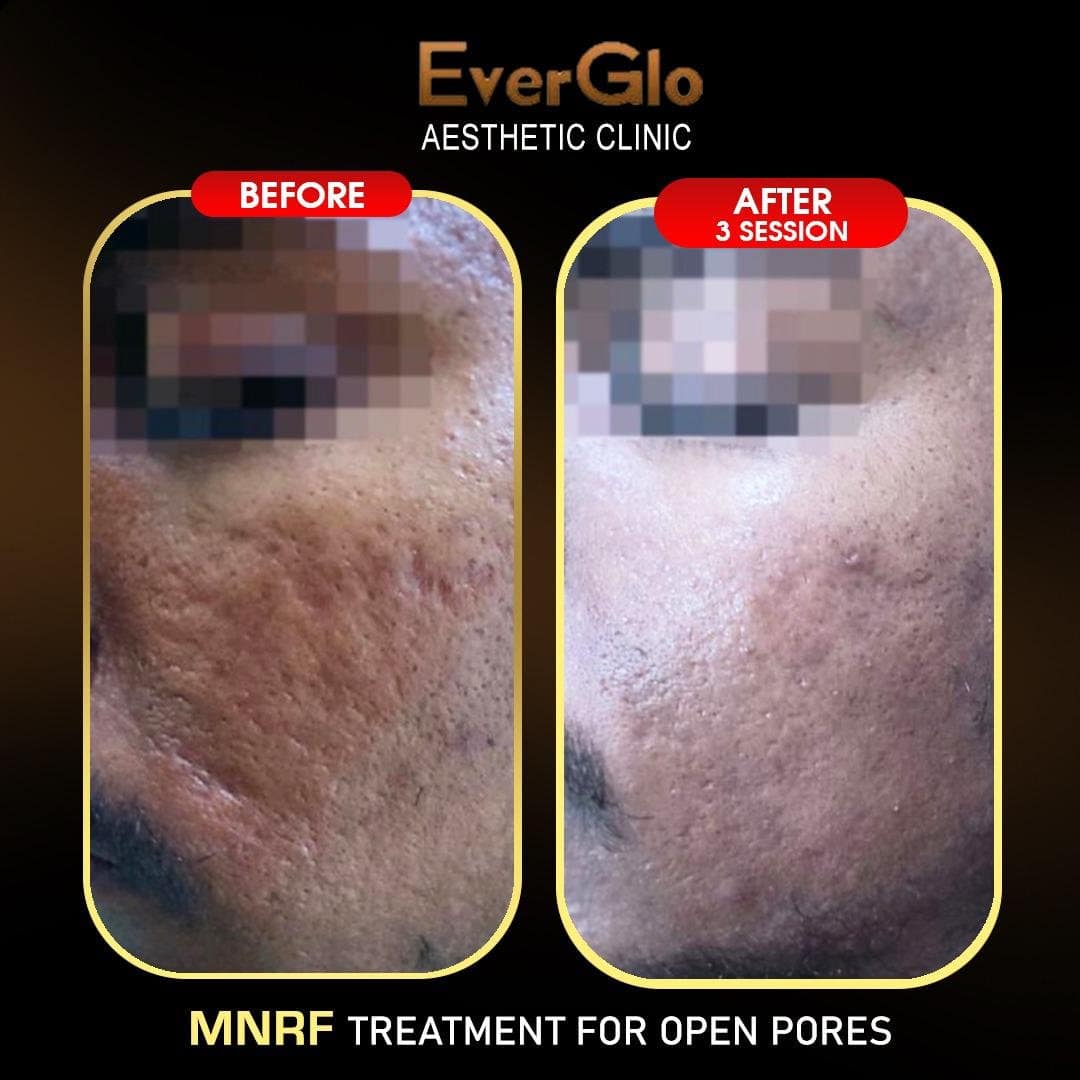Open pores are a common concern for many people, especially when they appear on prominent areas like the nose, forehead, or cheeks. These enlarged pores can give the skin an uneven and unappealing appearance. Factors like genetics, excess oil production, inadequate skincare, and poor skin maintenance often contribute to this issue.
What are Open Pores?
The skin contains tiny openings known as pores, which serve to release oil and sweat, helping to maintain hydration and overall skin health. Each pore houses a hair follicle and sebaceous glands that produce sebum, a natural oil. When these pores become clogged with a buildup of sebum and dead skin cells, they can become more prominent and lead to skin problems such as acne and comedones. Open or enlarged pores often manifest as small, noticeable dots on the face.
Types of Enlarged Pores
Enlarged pores come in different shapes and can be classified as follows:
- O-shaped pores: These are typically found in the T-zone and have a round appearance. O-shaped pores are common among individuals with oily skin and may increase the risk of developing acne.
- U-shaped pores: Found in individuals with dry or flaky skin, U-shaped pores are less common and often linked to skin dehydration.
- Y-shaped pores: These develop as a result of aging, when the skin loses elasticity and collagen. Y-shaped pores, which often resemble tiny water droplets, are commonly found on the cheeks.
Causes of Enlarged Pores
- Genetics: Your genetic makeup greatly influences your pore size. If your parents have large pores, you’re more likely to experience the same issue.
- Aging: As skin matures, it loses elasticity and collagen, which can cause pores to appear larger and contribute to sagging.
- Sun damage: Extended sun exposure can degrade collagen and elastin, resulting in decreased skin elasticity and the development of enlarged pores.
- Excess oil production: Overactive sebaceous glands can lead to clogged pores, making them more visible.
- Poor skincare routine: Neglecting proper skincare habits, such as cleansing, exfoliation, and hydration, can result in clogged pores and other skin issues.
- Environmental factors: Dirt and pollutants can accumulate on the skin, causing oxidative stress and inflammation, which can enlarge pores.
- Hormonal changes: Fluctuations in hormones during puberty, pregnancy, or menopause can also influence pore size by increasing sebum production.

Treatments for Enlarged Pores at EverGlo Aesthetic Clinic
At EverGlo Aesthetic Clinic, we offer a variety of advanced treatments specifically designed to minimize the appearance of open pores and enhance overall skin texture:- Microneedling: This treatment employs fine needles to create controlled micro-injuries in the skin, stimulating collagen and elastin production. As the skin heals, it becomes firmer, reducing the visibility of enlarged pores. Microneedling also enhances the absorption of serums or Platelet-Rich Plasma (PRP), providing additional rejuvenating benefits.
- Laser Treatments: These are highly effective for reducing large pores by targeting the deeper layers of the skin. Techniques such as fractional laser therapy and Intense Pulsed Light (IPL) stimulate collagen production, which tightens the skin and minimizes the appearance of pores. Laser treatments also enhance skin tone and texture, leading to a smoother, more refined complexion.
- Chemical Peels: This procedure involves applying a solution that exfoliates and removes dead skin cells, helping to unclog pores and improve skin texture. Chemical peels range from superficial to deep, depending on the severity of the condition, and are effective at refining the skin and reducing the size of open pores.
- Microneedling Radiofrequency (MNRF): MNRF combines the benefits of microneedling with the delivery of radiofrequency energy into the deeper layers of the skin. This dual-action approach stimulates collagen more effectively than microneedling alone, leading to tighter skin and smaller pores.
- Platelet-Rich Plasma (PRP) Therapy: This therapy utilizes the patient’s own blood, processed to concentrate platelets, which are then injected into the skin. The growth factors in PRP promote healing, stimulate collagen production, and enhance skin texture, helping to reduce pore size and rejuvenate the skin.


Personalized Treatment Plans at EverGlo
Our team of skilled dermatologists at EverGlo Aesthetic Clinic carefully evaluates your skin type and concerns to customize a treatment plan that suits your needs. Whether you’re dealing with oily skin, signs of aging, or the impact of environmental damage, we offer effective solutions to help you attain smoother, more radiant skin with reduced pore visibility.Schedule a consultation today to discover the best treatment options for you.CONTACT US
- +91 91760 35000
- Second floor, old no.18, New no 43, Adyar Bridge Rd, Adyar, Chennai, Tamil Nadu - 600020
- evergloaesthetic.adyar2023@gmail.com
